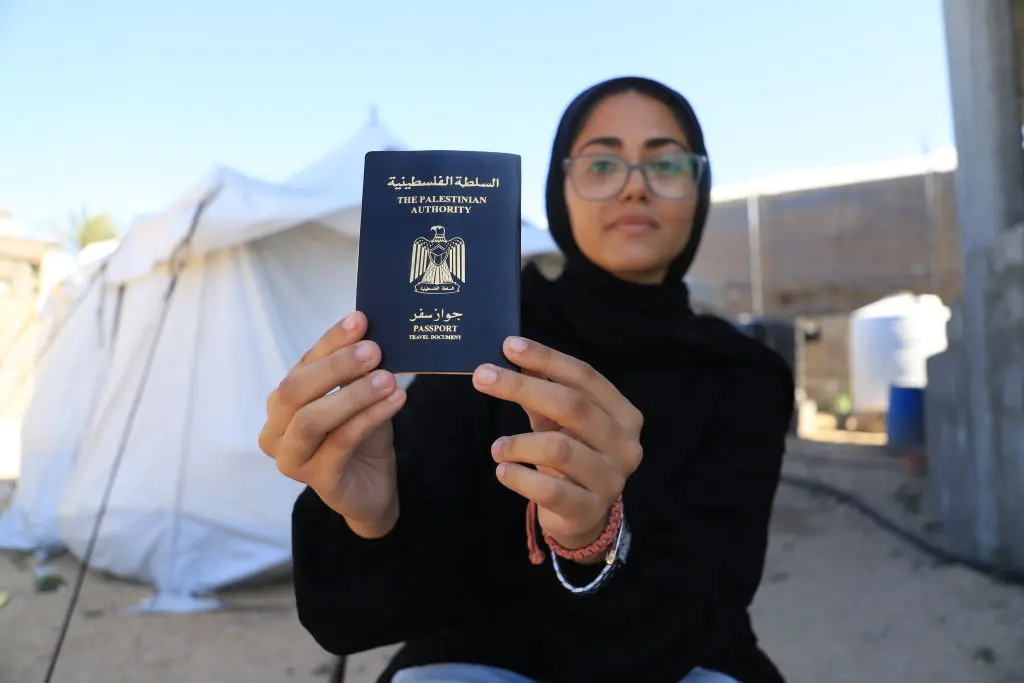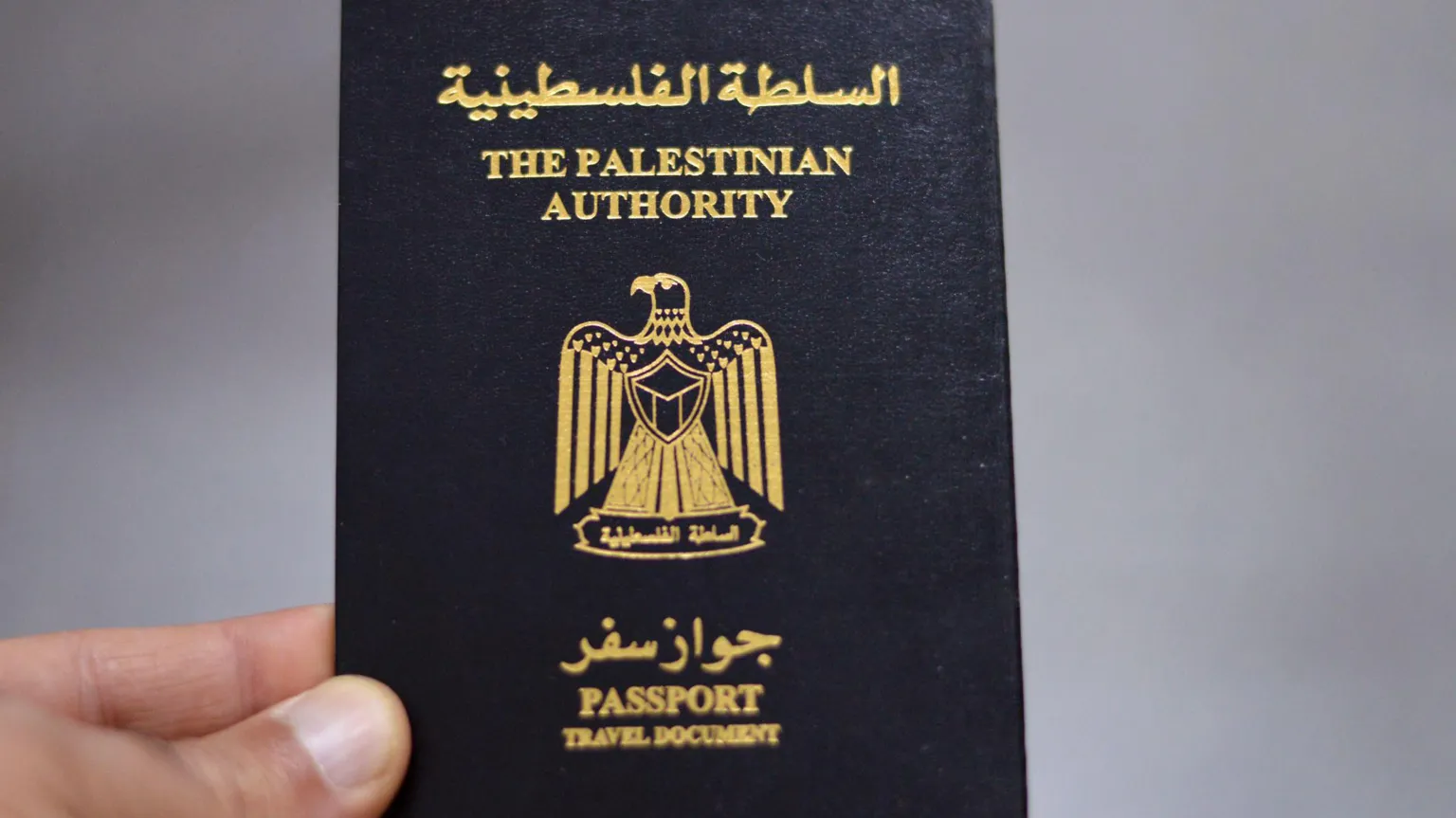In what is considered to be a mounting attack on global mobility based on nationality, the Trump administration, in an Aug 18 cable from the State Department to all US embassies and consulates, hardened the visa crackdown on Palestinians, suspending nearly all types of visas to Palestinian passport holders, whether they live in Gaza, the West Bank, or overseas. The sweeping ban comes amidst increasing global pressure for an indefinite and immediate ceasefire as the death toll in Gaza continues to rise in the face of increased starvation. As worldwide sympathy for the Palestinian cause continues to surge with the emergence of disturbing visuals, the blanket suspension is being seen as an escalation from earlier restrictions on Palestinians seeking to enter the US.
The newly-reported decree comes days after 80 Palestinian officials, including Mahmoud Abbas, president of the Palestinian Authority, were denied visas ahead of the United Nations General Assembly in New York. Abbas had been hoping to attend the UNGA in Manhattan along with another high-level summit hosted by France and Saudi Arabia, formally recognising a Palestinian state. Previously, Trump confidante and far-rights activist, Laura Loomer, had described the admission of families from the region seeking medical treatment in the US for their children as a “national security threat”.
Women stuck in conflict zones are exposed to a heightened risk of ‘war crimes’ such as rapes, sexual harassment, and gender-based violence.
While the visa denial isn’t a singular attempt by the Trump administration to increase the curbs on Palestinians, it constitutes a major roadblock for access to a safe and secure future, deepening the global clampdown on injustice.
Passport Discrimination, Globalisation and Palestinian Futures
In an increasingly globalised world, passports serve as access points to the world outside. Time and again, repressive regimes have used visa denial as a covert political technique to silence opposition. Columbia University, in a study, has found how governments use “visas as a bargaining tool, a quid pro quo at its most obvious.” Passport discrimination, today, comprises one of the most frustrating forms of inequality. It is a bureaucratic measure designed to entangle citizens in an endless loop of worries and threats, unequally impacting the population. Despite the temporary nature of the ban on Palestinian passports, it potentially means that Palestinian nationals can no longer gain access to vital educational opportunities or critical medical care, also disabling geographical connectivity with loved ones residing overseas in the US.
The US government has issued specific instructions to consular officers to invoke Section 221(g) of the Immigration and Nationality Act to refuse visas to Palestinian passport holders. Disguised as a measure to ensure “necessary vetting and other administrative protocols to ensure the applicant’s identity and eligibility for a visa under US law,” former US officials have called out the rejection. “It’s an open-ended refusal,” said Hala Rharrit, a former State Department spokeswoman, according to the NYT.
Palestinian Authority passports have been issued by the Palestinian Ministry of Interior, subject to Israeli approval, since 1995, as per Time. The decision, taken in the name of national security, has drawn widespread criticism for its discriminatory nature. “Every visa decision is a national security decision, and the State Department is vetting and adjudicating visa decisions for PA passport holders accordingly,” a US official told CNN.
Globalisation was believed to make the world feel smaller and more connected, opening up newer avenues. While the decision has a chilling effect on the freedom of mobility, it is not the only incident that has occurred in the past few years. Similar visa restrictions have also been implemented on Syrian, Iranian, Afghan, Iraqi, and other nationals from underdeveloped countries. This is a bigger question mark on access to opportunities solely based on birthplace, highlighting the implicit privilege based on nationality.
Power, Citizenship, and Passport Inequality
Passport inequality is the combined outcome of power equations, citizenship, ethnic background, and political undercurrents. Regardless of the UN’s declaration that the freedom of movement is a basic human right, mobilities are constrained by politically determined policies. This advances the discussion on mobility spaces, centring the conversation once again on the gendered impact posed by passport inequality.
The humanitarian crisis unfolding in Gaza has now claimed over 60,000 lives, blocking relief assistance, leading to forced displacement. The Trump administration, in a visible manifestation of power politics, has come down heavily on pro-Palestinian activists through new immigration and citizenship restrictions. In another image, clicked by Doaa Albaaz, Nur Al Rimlawi, a Palestinian artist in Gaza, can be seen holding her Palestinian passport on which she painted countries she wishes she could visit, capturing the emotional toll posed by restricted mobility.

Doaa Albaz—Anadolu/ Getty Images
In the entire process, what is often overlooked is the fact that international recognition, combined with the scope of mobility, is a prerequisite to statehood. The United States isn’t just the global leader at the round table; it also holds the passport to pause or initiate a conflict. Outright denial of visas doesn’t just divorce sovereignty from citizens; it is also a reminder of the brutal nature of the world’s most powerful country’s visible support for ethnic genocide. Stratification of global movement is thus one of the aspects of the diplomatic consequences the war holds, apart from the deadly attacks on journalists and diplomats, as well as corporate funding of the genocide by big firms.
Gendered Impact Of The Anti-Palestine Passport Regime
When visas are frozen and mobility is restricted, more often than not, women and children bear the brunt worse than their male counterparts. The inability to move out to safer spaces with better future opportunities compounds with the existing process of systematic marginalisation. Women stuck in conflict zones are exposed to a heightened risk of ‘war crimes’ such as rapes, sexual harassment, and gender-based violence.
It is also linked to greater risks of maternal deaths in the face of crumbling reproductive healthcare facilities due to the continuous bombardment of hospitals in the western strip of Gaza. The closure also entails the inaccessibility of premium medical facilities in the US for women. A report by the UN Women, for instance, underscores how “refugees, victims of demolitions, Bedouin communities and the population living in Gaza; and children, adolescent girls and boys; divorcees, women head of households, pregnant and lactating women and sex workers… experience a higher prevalence of sexual violence precisely because they inhabit situations of vulnerability.” As per figures from a 2021 report, some 25 per cent of pregnant women in the OPT were at risk of death during childbirth, while roughly 25 per cent of pregnant women also suffer from anaemia. The numbers are expected to grow as the conflict escalates.
The Gazan population isn’t merely the symbol of plight; it is the face of an urgent crisis the world is watching behind the comfort of their screens, yet choosing to ignore.
Similarly, the administrative impediment also restricts talented students from securing educational opportunities and scholarships abroad in the US. The gendered impact of the same would mean fewer women would be able to push themselves or their children out of the catastrophic conditions in Gaza, trapping them in a hostile environment, with increased atrocities.
The discussion ultimately draws attention to the paradox of our times-while globalisation effortlessly pushes the movement of goods, capital, and ideas, it sometimes restricts humanity behind in the web of passport hierarchies and discriminatory regime policies. The Gazan population isn’t merely the symbol of plight; it is the face of an urgent crisis the world is watching behind the comfort of their screens, yet choosing to ignore. Mobility should never be an accidental privilege determined by birthplace, especially when it comes at the cost of widespread death and destruction.
About the author(s)
Nausheen is currently an undergraduate student pursuing journalism at Lady Shri Ram College for Women, Delhi University. With a keen interest in feminism, geopolitics, and social issues, her passions lie in research, writing, and public speaking. In her free time, she enjoys listening to music, sipping coffee, and playing chess.






Insightful and clearly written—thanks for shedding light on an important, often overlooked issue. For anyone seeking calm, up-to-date guidance on study, work, or family visas, Xiphias Immigration can help navigate complex rules with care.
Nicely articulated! It Highlights the issue well